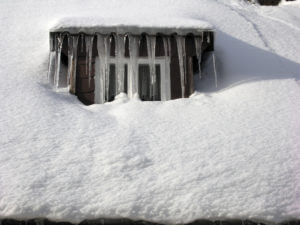How You Can Stay Warm with Winter-Ready Windows
 Are you feeling the chill this winter? Aged, outdated windows might be to blame – letting precious heat escape and consuming up to 50% of your wintertime energy bills.
Are you feeling the chill this winter? Aged, outdated windows might be to blame – letting precious heat escape and consuming up to 50% of your wintertime energy bills.
Keep reading to learn how the right windows can help you stay warm this winter:
Short-Term Fixes to Plug the Draft
There are actions you can take to reduce the amount of heat lost through your windows:
- Inspect the Insulation: All caulking should be in good condition. If it isn’t, replace it (making sure to thoroughly clean the area before reapplying a fresh layer).
- Weatherize Your Windows: The weather stripping you use should create an air-tight barrier without hindering your ability to easily open and close your windows.
- Let Light In: Clean your windows and remove any bug-blocking mesh to let more light enter and discourage condensation.
- Use Blinds, Curtains, and Drapes: Keeping them open during the day means they can let warm sunlight in, while having them closed overnight will defend against cold drafts.
Taking simple steps like these can help make your windows and home warmer throughout the winter, though keep in mind that they’re not long-term solutions to the more significant issues that might be causing heat to escape.
Long-Term Solutions to Keep Out the Cold
The ultimate correction for drafty and outdated windows is to find energy-efficient replacements that will maximize thermal performance, warm your home, and keep energy bills in check.
Make sure to take into account factors like:
1. ENERGY STAR Ratings
ENERGY STAR windows are certified to exceed strict requirements that have been tailored for individual climates. Southern Ontario is part of Zone B, meaning Ontario homeowners need to find windows rated for Zone B or colder.
2. Energy Efficient Features
- The U-Factor indicates heat transfer or loss (rates at which windows and doors conduct non-solar heat flows). For U-Factors, lower is better.
- The R-Value measures your window’s defence against heat loss. The higher the R-Value, the more energy efficient your window will be.
- Solar Heat Gain Coefficient (SHGC) is the amount of solar radiation or heat the window transmits. You want to look for windows with a higher SHGC in cooler or more variable climates like Southern Ontario.
- Visible Light Transmittance (VT) tells you how much light your window will let in. The higher the number, the more light you’ll enjoy.
3. Multiple Panes
Single-paned windows can be less expensive than their multi-paned counterparts, but they’ll also do a poor job insulating. Single-paned windows can dip to temperatures as low as -7 degrees Celsius during a chilly night.
Double-paned windows can help you reduce heat loss from your home by up to 50%. Triple-paned windows will be even more energy efficient, however they’re also heavier and more expensive.
4. Inert Gas Fillings
Gas fills help your windows perform better in cold temperatures.
The two most commonly used gases are:
- Argon, which is inexpensive, odourless, non-toxic, and clear and has lower thermal conductivity than air (67% in comparison). It’s typically used for double-paned windows.
- Krypton is better at insulating than argon, though it’s also more expensive. It’s used more often for windows with three panes.
Manufacturers will sometimes use a combination of gases (nitrogen, xenon, krypton, and argon).
5. The Proper Window Frame
In general, a non-metal frame (like vinyl) will be less conductive than a metal one (like aluminum). Often, manufacturers will use warm edge spacers between double- or triple-paned windows to minimize condensation, conductivity, and heat transfer.
Remember that a window is only as good as the person who installs it. You should choose an experienced home contractor to ensure the highest quality workmanship and complete satisfaction once the job is done.
At Quality Exteriors, we are experts at helping you find the ENERGY STAR windows that will fit your home and save you money. Contact us today to request a free in-home consultation.
Serving homeowners in St. Catharines, Niagara, Hamilton, Burlington, and Oakville.
Like this? You might also like:
- 5 Tips for Finding Winter-Ready, Energy Efficient Windows
- Are Your Home’s Windows Outdated? What You Need to Know about Full Frame Window Replacements
- Can New Windows Really Save You Money?
- When to Request an Estimate for Exterior Work - February 26, 2020
- Merry Christmas from Quality Exteriors - December 18, 2019
- Quality Exteriors Listed In Top 3 Window Companies In St. Catharines - December 5, 2019






